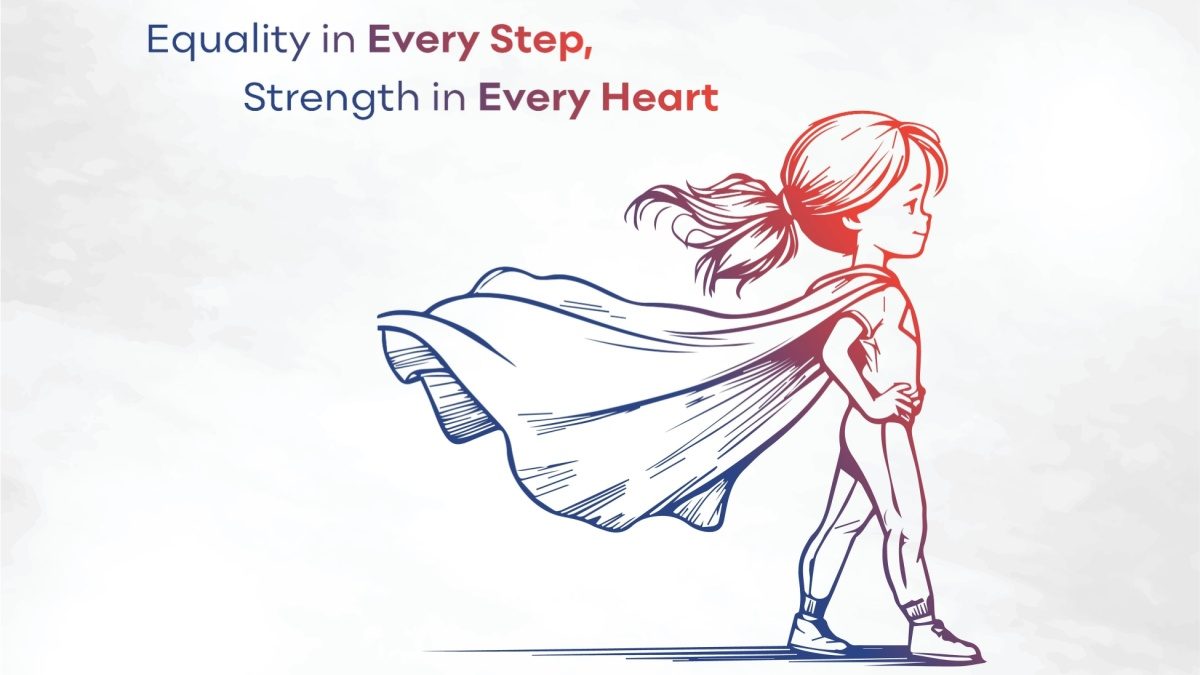Last Updated:
As we celebrate National Girl Child Day, the stories of progress and challenges highlight the complex landscape of gender equality in India
International Day of the Girl Child is celebrated on October 11 every year. (Image: Shutterstock)
India’s journey from Beti Bachao Beti Padhao to empowering girls through education has been a significant one, yet it is clear that there is still much work to be done. While the campaign initiated by PM Modi in 2015 has had a positive impact, the real story of change lies in the grassroots work being done by organizations and activists across the country. On National Girl Child Day, we take a moment to reflect on how far we’ve come and the challenges that remain, through the voices of those on the frontlines.
Empowering Adolescent Girls
Dhirendra Pratap Singh, Co-founder & CEO of Milaan Foundation, has witnessed firsthand how programs like Beti Bachao Beti Padhao are catalyzing progress for girls’ rights and gender equality. Singh shared, “PM Modi’s Beti Bachao Beti Padhao campaign has catalyzed crucial strides in girls’ rights and gender equality. At Milaan, we’re amplifying this momentum through our Girl Icon Program, empowering adolescent girls across UP, MP, and Karnataka with 21st-century life skills, leadership training, and the confidence to challenge gender norms. Our program is creating a generation of girl leaders who are sparking transformative change in their communities.”
Singh provided an inspiring example: “Take Priyalakshmi from Hubli, Karnataka. Raised by seasonal laborers in a slum, she faced anemia and inconsistent schooling. Through Milaan, she completed her education, accessed vital government support, and became a vocal advocate for girls’ education. Today, she’s on a full-ride scholarship at a top engineering college in Bangalore and interning at a deep-tech start-up, with dreams of joining a MAANG company.”
The program’s impact is evident. “The results speak volumes: less than 1% of our Girl Icons become child brides, 92% complete secondary education, and 96% are well-informed about their sexual and reproductive rights,” Singh added, highlighting the transformative power of education and support for girls.
Challenges Persisting at the Grassroots
However, while many stories of success exist, challenges remain, especially in underprivileged areas. Brinda Adige, Director at Global Concerns India and a vocal women’s rights activist, pointed out the gaps that persist despite governmental initiatives. “In the act of Beti Bachao Beti Padhao, there has not been much progress in ensuring that every child stays in school. We see this most in slums in Bengaluru, outskirts of Bengaluru, and in rural areas. Many poor and migrant families, even if they manage to enroll their girls in school, struggle to ensure they stay. These girls often drop out before completing their education and are not promoted to the next class,” Adige said.
The issue becomes even more pressing when child marriage continues to be a challenge. “The number of child marriages remains alarmingly high, and the laws protecting against such practices often encounter hurdles in enforcement. This makes it even more difficult to ensure that these girls remain in school and are protected from early marriages,” she emphasized.
Funding Education through Crowdfunding
Varun Sheth, Co-founder & CEO, Ketto, shed light on how crowdfunding is opening new opportunities for girls’ education, even as traditional barriers persist. “Over the previous few decades, our nation has made tremendous development. But there’s still a long way to go. When a family cannot afford to educate all of their children, a girl child is seen as someone who should be given away in marriage. Often, families who can’t afford to educate all their children prioritize saving for the girl’s marriage rather than her education,” Sheth explained.
While significant strides have been made in reducing female feticide, the battle over education versus early marriage continues. “Although the number of female feticides has significantly decreased, people still struggle to decide whether to marry a girl off or help her achieve an education. For this reason, it’s critical to spread the word about all that a girl child is capable of. Promoting incentives for educating girls is necessary,” Sheth emphasized.
Platforms like Ketto play an essential role in raising funds for girls’ education, but Sheth stresses the importance of awareness-building alongside financial support. “While donations are effective in assisting girls with their education, awareness-building alone is not enough without solutions and strategies to address the broader problem. Crowdfunding has opened doors for girls to pursue their academic objectives, but as a community, we must devise additional strategies to ensure that every girl child in every home gets educated.”
The Road Ahead
As we celebrate National Girl Child Day, the stories of progress and challenges highlight the complex landscape of gender equality in India. From Milaan’s impactful programs empowering girls like Priyalakshmi to Brinda Adige’s call for systemic change and Varun Sheth’s advocacy for crowdfunding solutions, it is clear that change is possible. However, the path to full gender equality and the empowerment of every girl child is ongoing and requires collective efforts from all sectors of society.

